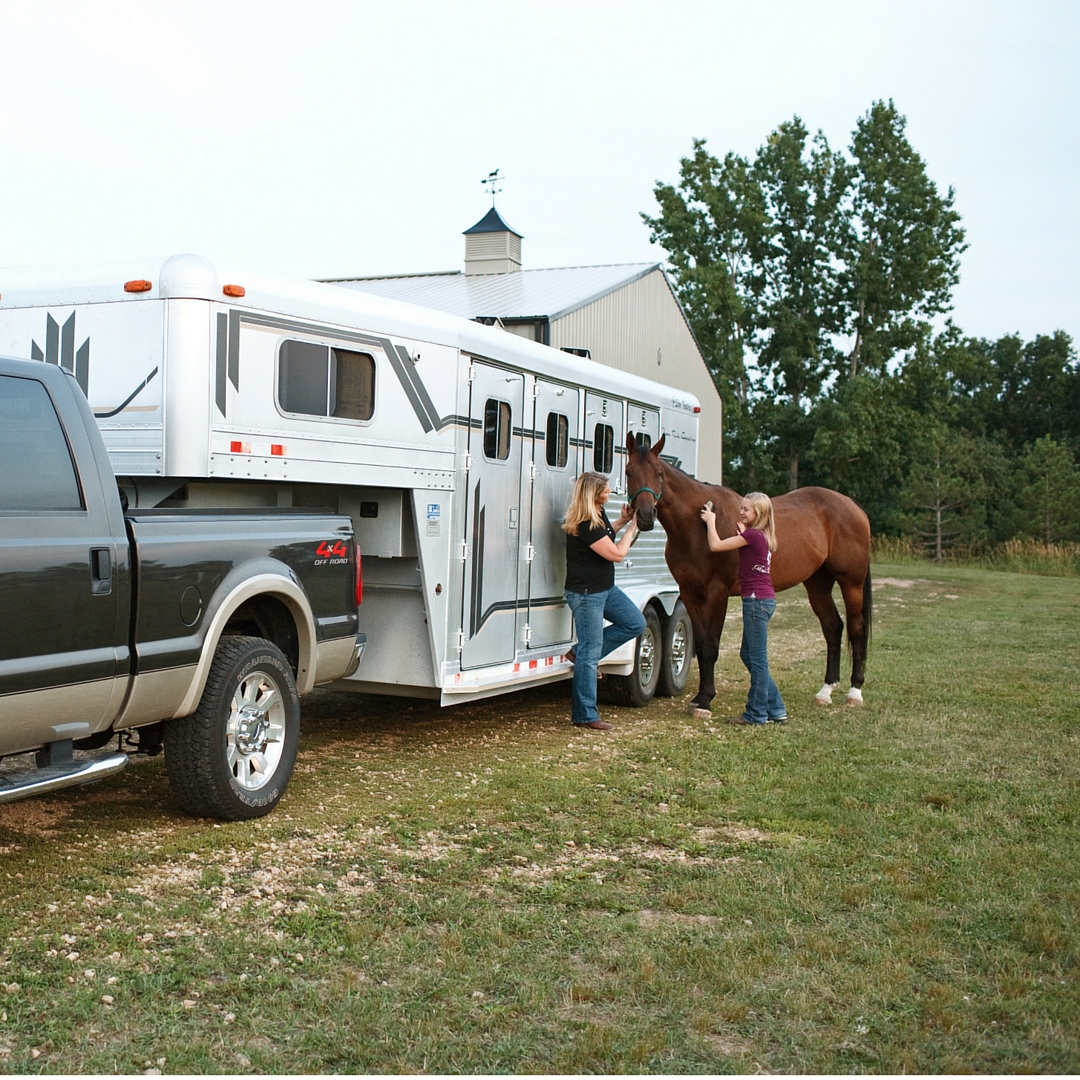Horse Trailer Checklist

It’s about that time, the temps are climbing and you’re ready to hit the road to the next show, event, rodeo or trail ride. But before that can happen, a well-operating horse trailer is a must. Here are some tips to make your next trailer trip stress-free.
Good Tires
Probably one of the most important considerations when hitting the road is the condition of your trailer tires.
It may seem like a no-brainer, but proper tires are key.
Make sure you are purchasing tires specific for trailer use, in order to support the heavier load-bearing requirements.
A good reference when determining if it’s a tire made for trailer use is to look for a €˜ST’ or special trailer indication printed on the tire. Something else to look for on the tire is the load rating.
Each tire will have a number printed on the side to indicate load rating, add the load rating of all the trailer tires to determine the weight capacity. That total should be equal to or greater than your fully loaded trailer weight.
Don’t forget that tire age should be considered as well, due to deterioration of tire structure over time. An easy way to check age of a tire is to look for a 4-digit number (i.e. 1215, built on the 12th week of 2015) which will indicate the tire build date. A physical evaluation of the condition of the tire goes a long way as well in determining age and wear.
Additionally, always check your tire pressure before a trip, as it’s an incredibly important step in safety and comfort in travel.
Checking Trailer Condition
It’s important to check all safety points before hooking up to hit the road. Look over floorboards, ramps, dividers, etc. for signs of rot, rust or deterioration. Also test hinges, springs and latches for secure closure and good working order.
Make sure the trailer hitch is kept well lubricated and checked for missing parts. Chains should also be in good condition. While evaluating the hitch, make sure your jack is working correctly.
Hooking Up the Trailer
Before you even hook up the trailer to your truck, make sure the vehicle is rated to tow the weight of the trailer. Determine if the trailer is balanced and rig is level, as well as test lights and breaks before hitting the road. Make sure to do a loop around your rig to make sure all doors are secured and hitch is attached correctly.
Emergency Items
Below is a list of items to include in case of emergency as you take to that long stretch of highway:
- Spare tires for the towing vehicle and trailer (inflated to proper PSI)
- A jack and tire iron or lug wrench
- Three emergency triangles or flares (triangles are best)
- Extra supply of coolant/engine oil/transmission and power steering fluids, plus a funnel and service rags
- WD-40 or other lubricant
- Chocks to safely block wheels
- Flash light and extra batteries
- Tape (electrical and duct)
- Spare fuses and bulbs for exterior and interior lights
- A charged fire extinguisher
- Sharp knife and wire cutters
- Tool kit
- Jugs of clean water (can be used for radiator or horses)
- Jumper cables
- Spare belts and hoses
- Tow chain or cable
- Portable compressor
- Quick fix tire repair kit
- Broom/shovel/manure fork and disposal bags
- Vehicle registrations for the towing vehicle and trailer
- Proof of insurance
Now that you’ve checked off all the to-do’s of trailer safety, it’s time to hit the road and enjoy the next equine adventure!
At Nutrena, we believe proper nutrition plays the biggest role for a lifetime of health and happiness for every horse. That’s why Nutrena horse feeds are specifically formulated for every life stage and activity level.
Ready to ensure your horse is getting the optimum nutrition at feeding time, every time? Find the perfect feed formulated specifically for horse’s needs with our Feed Selector Tool.
